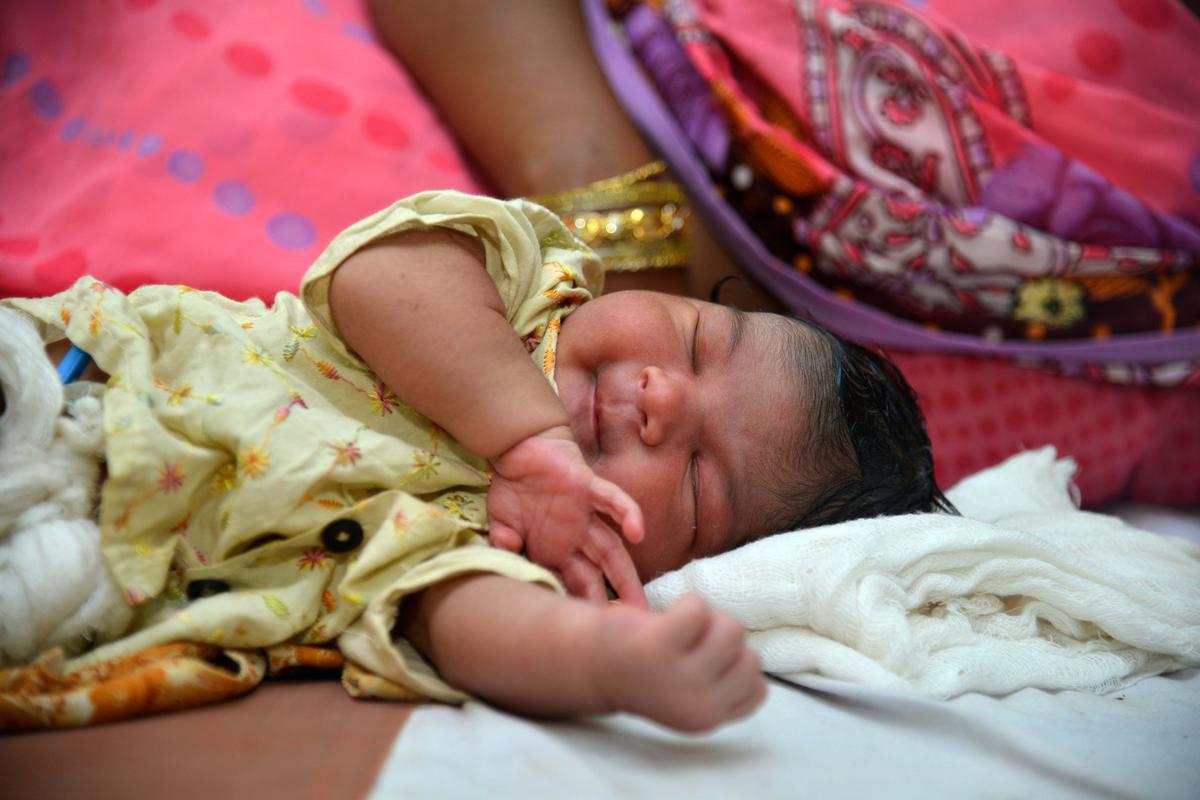As some stories of change from across India show, it is crucial to empower frontline health workers who are driving developmental and nutritional outcomes for mothers and children in the last mile.
As some stories of change from across India show, it is crucial to empower frontline health workers who are driving developmental and nutritional outcomes for mothers and children in the last mile.
Addressing malnutrition is critical to laying a solid foundation for human development. Optimal maternal nutrition and infant and young child feeding are the most effective set of interventions to reduce childhood death and illness, prevent undernutrition, determine cognitive development, and ultimately enable productivity in adult life. Specifically, the first 1000 days of life, that is, from conception to a child’s first two years of life, are key as this phase presents a critical window of opportunity to ensure healthy growth, development, child survival and nutrition and optimal health for life. In fact, 80% of brain development takes place in the first 1,000 days of life.
To address the persistently high burden of malnutrition, India has undertaken several policy and programmatic efforts including the flagship programme, Prime Minister’s Master Plan for Holistic Nutrition (POSHAN) Abhiyaan (launched April 2018) under the Ministry Women and Child Development (MWCD). Its overall goal is to improve nutrition outcomes by focusing on capacity development, improved service delivery, community mobilization and engagement, use of technology, and convergent interministerial/interdepartmental planning and review. In addition, there has been an increased focus on documenting coverage of interventions in the first 1,000 days, such as pregnancy registration, antenatal care, and exclusive breastfeeding, compared to the situation in 2015-16.
Evidence-based interventions are key
The evidence tells us that to generate changes in nutritional outcomes, evidence-based interventions must be delivered with high coverage, continuity (during the first 1,000 days of life and across distribution channels), intensity (multiple interactions), quality, and equity. Women’s health and nutritional status, including weight and hemoglobin level, age at conception, and levels of multiple micronutrients during the periconceptional period, are critical determinants of child health.
The critical importance of preconception care, that is, care before pregnancy, is recognized. In 2018, the Ministry of Health and Family Welfare worked with Maharashtra and UNICEF to introduce the first innovative primary health care program to promote women’s health during the preconception period, in the Peth and Sinnar blocks of the Nashik district, Maharashtra. During the program, which was completed in 27 months, it was seen that promoting the health of adolescents and women not only promotes the health of the newborn but also prevents low birth weight, premature birth and neonatal deaths. Its success caused it to be scaled in several districts of the state.
All of these interventions are delivered down to the last mile by the frontline workforce network: Accredited Social Health Activists (ASHA), Auxiliary Nurse Midwives (ANM), and Anganwadi Workers (AWW), who play a key role in the empowerment of the community in planning and action in health. In many geographies, they are the only point of access to basic nutrition and other health services. They are critical to promoting healthy practices, providing support on the ground and raising awareness.
in uttar pradesh
For example, during the Poshan Pakhwdaa in March 2022, in a remote village in Uttar Pradesh, all families with children under the age of two were able to overcome old fears and misconceptions and weigh their children at the anganwadi center after multiple and continuous efforts by the AWW, supported by the lady supervisor. Mothers and other family members, such as grandmothers as well as fathers, were informed about the benefits of regular weight measurement. Men, especially fathers, also play a very important role in ensuring maternal and neonatal health (MNH). They can influence behaviors and good practices around SMN within their households and communities. Studies show that mothers are 1.5 times more likely to receive prenatal care in the first trimester when fathers are involved during the pregnancy.
Let’s go back to the story. The AWW and the supervisor found support in the panchayat pradhan who had organized a community-level meeting a day before the start of the Poshan Pakhwada. All men, women, AWW, ASHA, school teachers, and community elders participated to raise awareness of the benefits of weight measurement, early detection of malnourished children, and ensuring that all eligible young children are weighed.
Also read: How to combat malnutrition
Similarly, female supervisors in a block in Unnao district, Uttar Pradesh, have ensured that AWWs have not only been provided with growth monitoring devices, but have also been trained to accurately measure and record body weight. . Community mobilization meetings were also organized to ensure coverage for all eligible children.
Driven by frontline workers and their supervisors, these stories of change from Uttar Pradesh resonate with the joint efforts of AWW and ASHA workers in a remote village on the border with Nepal, who ensure the regular weighing of every child every day. months to detect deficiencies in early growth. .
The drive to strengthen the nutrition system focuses on regular training, supportive supervision, and motivation of frontline workers to deliver quality, targeted, and contextualized health and nutrition services. These, along with data-driven reviews, should be prioritized and maintained at the program level. Due to their deeper understanding of problems and needs at the grassroots level, their contribution to the health of the community is much greater. It is crucial to empower our frontline workers who are driving change in the last mile.
Dr Dinesh Baswal is MNCH Leader and Head of Party Saksham MNCH Accelerator supported by USAID (South Asia Hub). He is also a former Deputy Commissioner for Maternal Health, Ministry of Health and Family Welfare.
.
